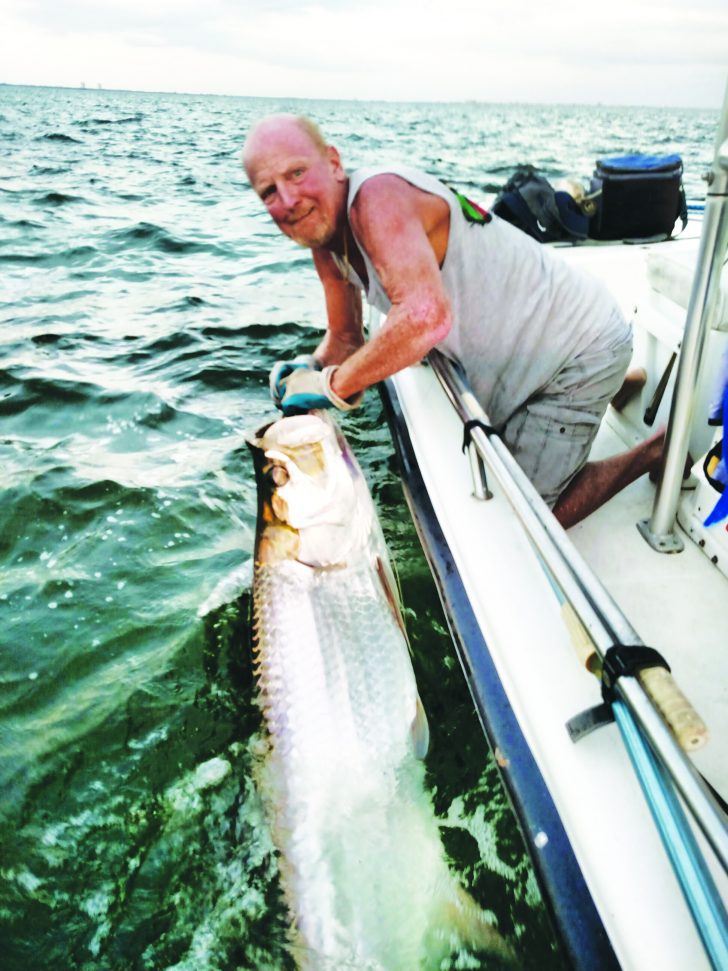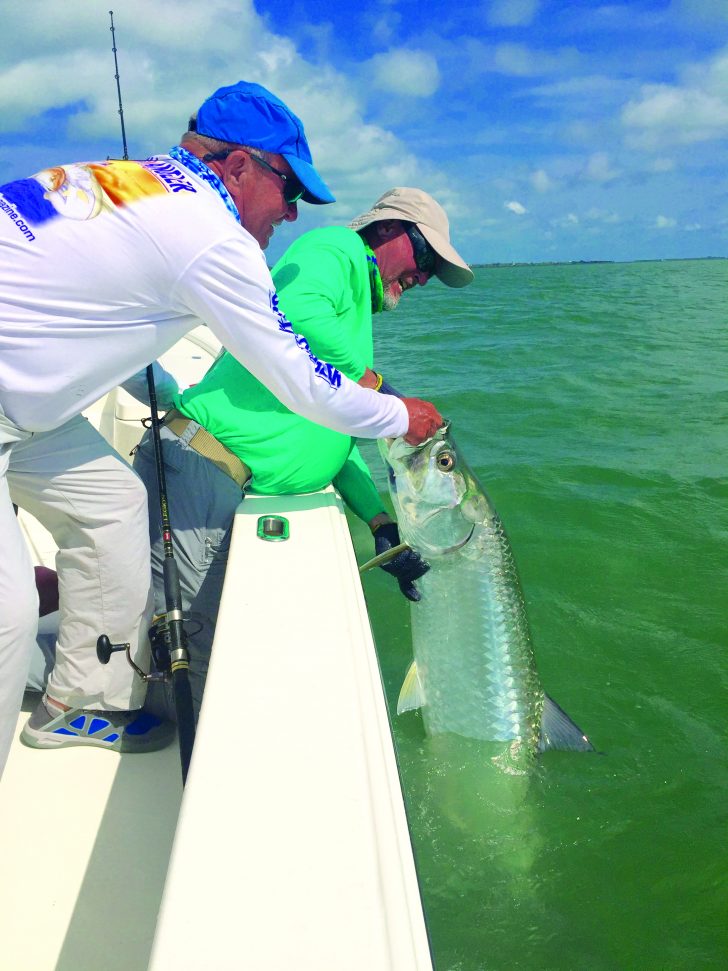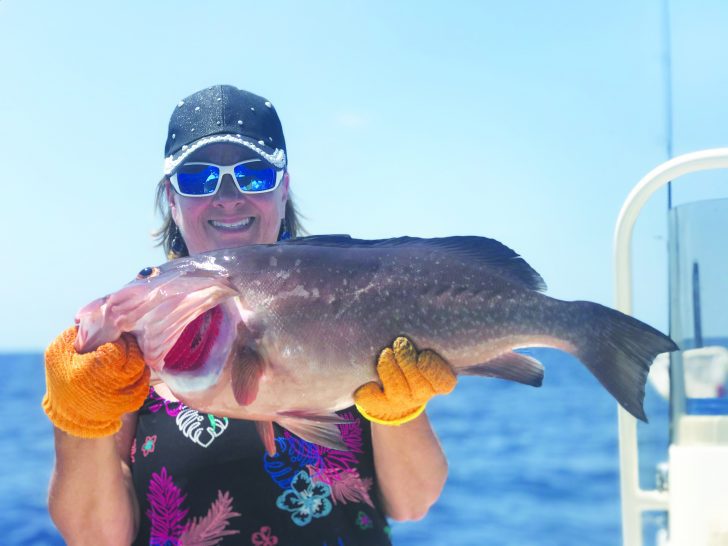by Captain Terry Fisher
In spite of the recent Pandemic (Corona Virus) ‘Outbreak’, the tarpon are everywhere. Prayerfully and hopefully by the time this article is published the concerns and issues of the ‘Outbreak’ have passed and all is well. Regardless, hats off to Mayor Joe Coviello, the Council men and women of Cape Coral together in conjunction with Sheriff Carmine Marceno, of Lee County for having the foresight and savvy to leave open boat ramps for fishing and recreational activities throughout most, if not all, of the uncertainties surrounding the Corona Virus.

While there are many qualified guides for hire, other than myself, I recommend Captain Dave Markett of Odessa, Florida. Like me, we have both spent years fishing. Captain Dave has been a professional guide for 49 years running, that include 29 years of fishing the Pass for hire. Dave may be reached at dmarkett@aol.com or by calling him at 813-455-3056. Fishing the Pass is not for the ‘faint of heart’. At times it is crowded and intense. It also requires a different mindset and angling expertise. It requires a ‘reel’ art just to hook up, not to mention landing the fish. These are big fish and for the most part must be fought and landed in a very crowded theater.

Unfortunately, at times fishing the Pass can be compromised due to strong currents and wind. This is where other locations come into play to catch a big tarpon. Remember, these tarpon are all migrating from the Caribbean Sea and beyond. They must swim northward along Marco, Naples, Ft. Myers and the beaches of Sanibel, Captiva and Cayo Costa or via Pine Island Sound to get to Boca Grande. Most guides prefer to fish these various locations, as they are not as crowded as the Pass and not as much pressure on the fish. I have three suggestions for those wanting to learn to catch a tarpon:
1) Hire a Tarpon Guide to take you (preferably me).
2) Join a Tarpon Hunters Club.
3) Go out with someone that has targeted them and actually caught a few.
Locations other than the Pass require different setups. These fish can be found anywhere from 1000 yards off the beaches to 30 miles offshore. The technique is to identify a corridor that the fish are swimming and set the boat in a position ahead of them to receive them. A variety of baits are available and can vary depending on what the fish are looking for. The baits include both live and dead presentations and should be placed in the path of the oncoming school of tarpon. Dead baits include; mullet, ladyfish, Spanish mackerel and catfish fillets weighted and fished on the bottom of the seabed. Live baits include; pinfish, pilchards, crab, threadfins, mullet, ladyfish. Although they can be ‘free-lined or weighted, I prefer to suspend live baits under a cork on a 5’-6’ leader.
Recommended equipment for these sizes of fish range dramatically. I use spinning reels in the 6000-8000 series on 8ft. rods with 30-40lb butt strength ratings. 65lb. test line with 60-80lb fluorocarbon leaders and 7/0-9/0 circle hooks. Heavier equipment can be used, but is not necessary.
Every day will not be ‘Tarpon Day’. Tarpon do not bite nonstop or all day. I like to offer my clients the best of both worlds. When the tarpon are cooperating (biting) go strictly for them. If and when the become finicky and not cooperative (by ignoring all and any presentations) change up the plan and fish for snook, redfish, tripletail and other species that are willing and eager to eat.


